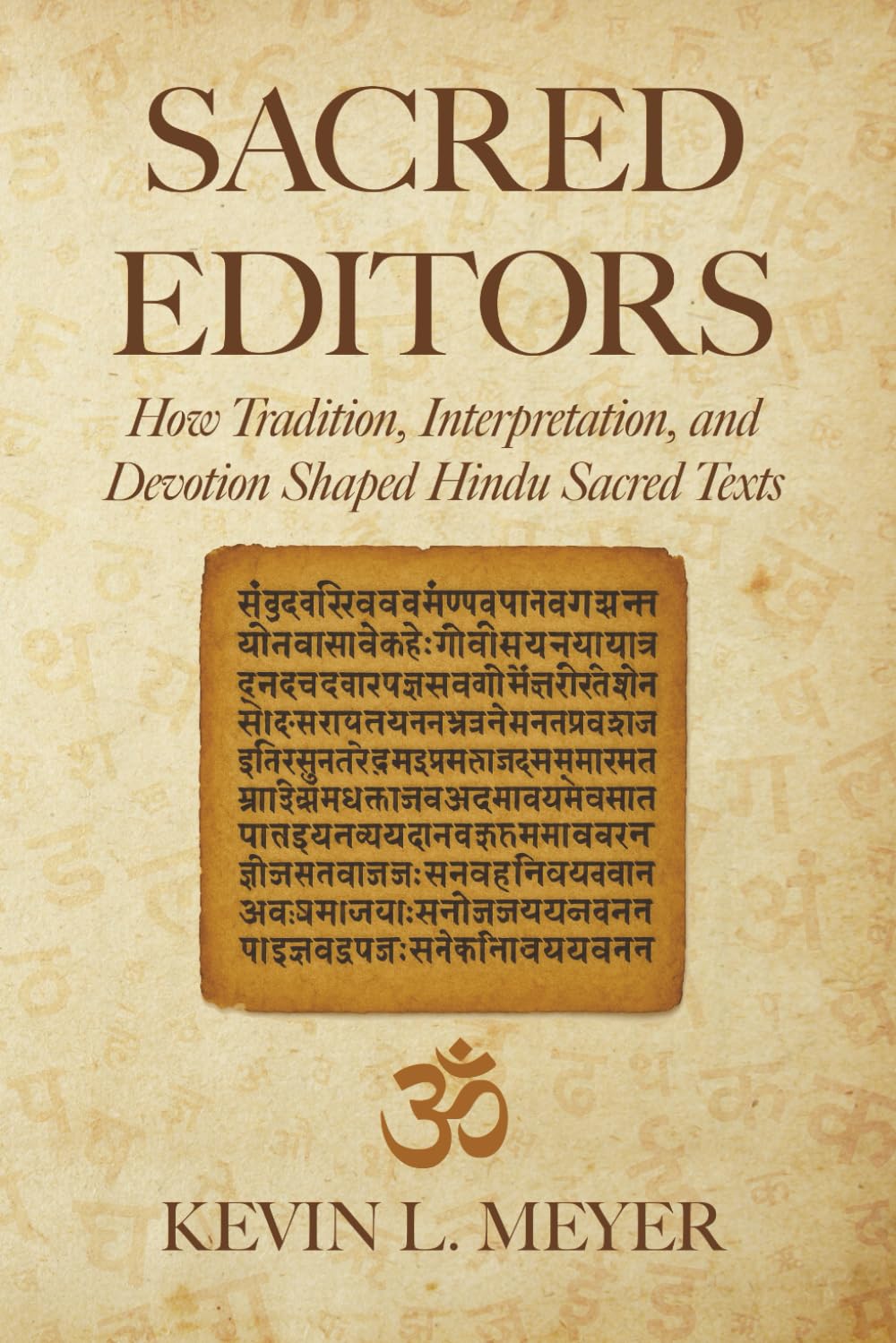Sacred Editors: Hinduism
The Sacred Editors: Hinduism
This volume journeys through Hinduism’s vast sacred landscape, from the oral recitation of the Vedas to the digital reinterpretation of ancient texts. It traces how sacred authority emerged not just from authorship, but from recitation, ritual, commentary, and debate—and how gender, caste, colonialism, and reform have continually shaped what counts as “sacred.”

Read the book online below, or purchase a print or Kindle edition:
Table of Contents
- Introduction: Why Sacred Editing Matters in Hinduism
- Prologue: The Stakes of Transmission
- Chapter 1: Oral Roots — The Keepers of the Veda
- Chapter 2: Writing Emerges — Manuscript and Memory in Ancient India
- Interlude A: The Lost Vedas and Forgotten Recensions
- Chapter 3: The Vedic Canon — Who Decided and Why?
- Chapter 4: Capstone – Sound, Text, and the Shaping of Early Authority
- Chapter 5: The Mahābhārata and Rāmāyaṇa — Epic Editing and Expansion
- Chapter 6: The Upaniṣads — Radical Innovation, Tradition, and Transmission
- Interlude B: Alternative Narratives — Jain and Buddhist Reinterpretations
- Chapter 7: Smriti — Dharmaśāstra, Law, and Living
- Chapter 8: Gender, Caste, and Margins — New Voices in Hindu Text History
- Chapter 9: Capstone – Fluidity and Fixity: The Expanding Universe of Hindu Tradition
- Chapter 10: The Purāṇas — Myth, History, and Authority
- Chapter 11: Commentary Traditions — Creating Meaning, Claiming Truth
- Interlude C: The Role of Women — Voices Amplified and Edited Out
- Chapter 12: Sectarian Canons — Tantra, Sūtras, and Devotional Texts
- Chapter 13: Science, Cosmology, and Knowledge in Hindu Texts
- Chapter 14: Capstone – Contours of Orthodoxy: What Was Left In, What Was Left Out
- Chapter 15: Colonial Encounters — Textualization, Translation, and the Western Gaze
- Chapter 16: Reformers and Radicals — Modern Hindus Edit their Past
- Interlude D: Forgeries, Fabrications, and the Politics of Authenticity
- Chapter 17: Sacred Texts in the Diaspora — Transmission and Change in a New World
- Chapter 18: Digital Hinduism and Scriptural Interpretation in the Modern Age
- Chapter 19: Capstone – Whose Scripture? Global Hinduism and Authority Today
- Conclusion
- Research and Methodology
- Appendix A: Timeline of Events
- Appendix B: Glossary of Key Terms
- Appendix C: Major Schools and Commentarial Traditions
- Appendix D: Brief Biographies of Key Scholars
- Appendix E: Significant Translations and Editions
Part I: Origins — From Sound to Scripture
Part II: Proliferation — Epics, Upaniṣads, and New Voices
Part III: Challenge and Change — Sectarian Texts, Commentary, and Debate
Part IV: Modernity, Reform, and the Global Era
Appendices